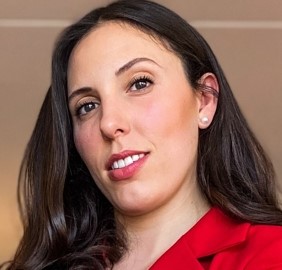Understanding the Impact of Policy Perceptions on Zero-Emission Truck Adoption in Sweden
As part of the ITRL Breakfast Seminars series, Sophie-Marie Ertelt, junior researcher at Örebro University School of Business, presented her research on the impact of policy perceptions on zero-emission truck adoption in Sweden.

Accelerating the adoption of commercially available zero-emission vehicles (ZEVs) is essential to reduce road freight transport emissions, yet progress remains limited despite regulatory efforts. While much research has focused on adoption determinants such as cost, infrastructure availability, and operational range, less attention has been given to individual actor-internal factors such as perceptions, emotions, and experience. This seminar discussed how these internal, often psychological factors can affect the transition to low-carbon technologies and emphasise the need for policies that consider such emotional and cognitive dimensions to accelerate the adoption of ZEVs. Sophie-Marie Ertelt presented the results of a national survey of Swedish hauliers conducted as part of the Circular Charging Solutions for Decarbonized Freight Transport (CIRC-S) project, which reveal how these factors, particularly the perceived neutrality of policy mixes and anticipated regret over premature adoption, significantly influence ZEV decision-making. By examining how emotional responses and prior ZEV experiences shape adoption delays, the research highlights the need for policy designs that address technical and economic barriers and the cognitive and psychological dimensions of decision-makers to accelerate the transition to low-carbon freight transport.
About the speaker: Sophie-Marie Ertelt is a junior researcher at Örebro University School of Business whose PhD thesis has focused on net-zero transition acceleration challenges of the road freight sector.

